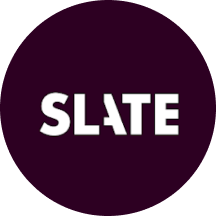
By Lisa Baertlein
LOS ANGELES (Reuters) -California Governor Gavin Newsom this week vetoed a law that would have limited the regulatory powers of air quality agencies at the ports of the nation's busiest port complex at Los Angeles and Long Beach, which is the biggest source of local air pollution.
California Senate Bill 34 would have prohibited the South Coast Air Quality Management District in the counties of Los Angeles, Orange, Riverside and San Bernardino from proposing any action that, among other things, would impose a cap on cargo throughput or cruise ship passengers at ports that contribute to billions of dollars of California tax revenue and create well-paying union jobs.
That local regulator oversees an area that is home to nearly 17 million people - about half of California's total population - and is one of the nation's smoggiest.
"With the current federal Administration directly undermining our state and local air and climate pollution reduction strategies, it is imperative that we maintain the tools we have and encourage cooperative action at all levels to avoid the worst health and climate impacts," Newsom said in a veto statement on Monday.
Environment groups applauded the action. The Pacific Mariners Association port employer group also approved - but that was because the union-supported legislation would have limited port automation.
Newsom also said SB 34 would have interfered with talks between the air district board and the Los Angeles and Long Beach ports to create a cooperative agreement to "identify and advance prudent air quality improvement measures."
The South Coast Air Quality Management District last year paused implementation of its Indirect Source Rule on emissions at ports until an alternative cooperative agreement with ship owners, terminal operators, truckers and other stakeholders could be developed.
The current collaborative effort is backed by city mayors and port executives as well as the Pacific Merchant Shipping Association.
But environment groups warn the proposed cooperative agreement includes a resolution that could pause new rules on ports for five years, even though measures to control pollution have not been completed, said Fernando Gaytan, senior attorney at Earthjustice, which opposes the plan.
"We think that's backwards. Rulemaking needs to still be on the table until you have a solid plan for addressing pollution at the ports," Gaytan said.
The South Coast Air Quality Management District's governing board is scheduled to vote on the rulemaking pause on November 7.
(Reporting by Lisa Baertlein in Los Angeles; Editing by Aurora Ellis and Jamie Freed)

 Reuters US Domestic
Reuters US Domestic
 The Daily Beast
The Daily Beast @MSNBC Video
@MSNBC Video Slate Politics
Slate Politics America News
America News Nicki Swift
Nicki Swift